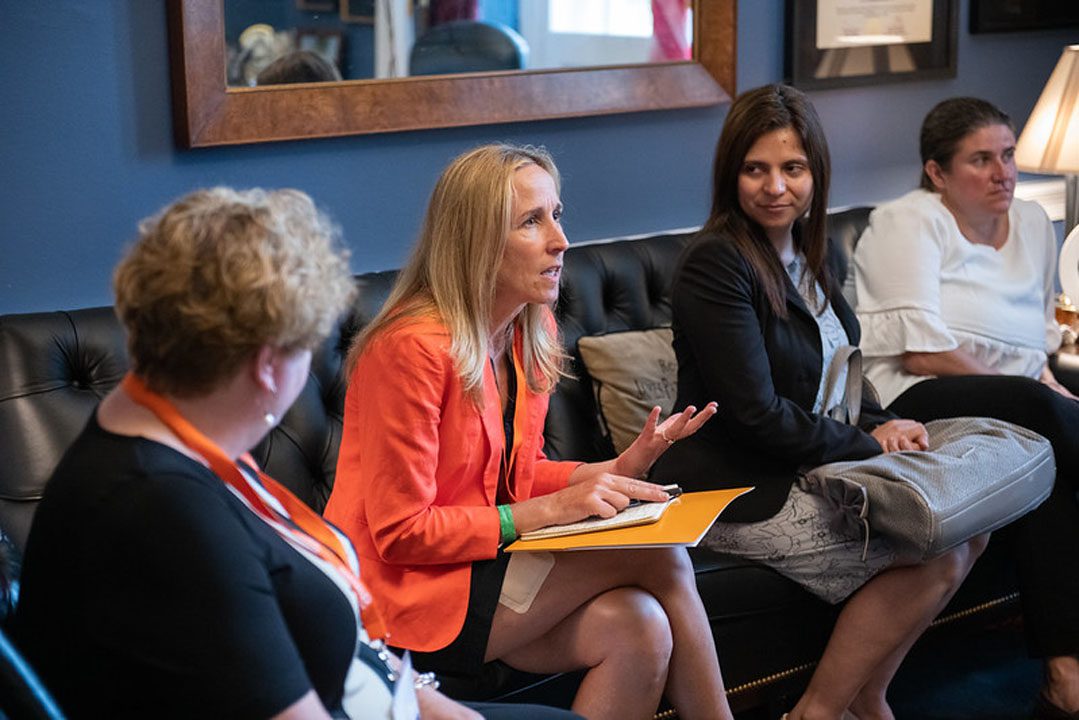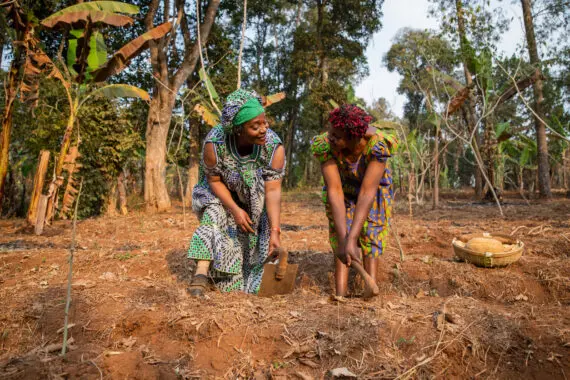At the two-week United Nations Conference of Parties (COP 28) gathering in Dubai, United Arab Emirates, December 4 was Gender Equality Day, and Bread for the World attended some of the hybrid sessions. December 4 was also Finance Day, where public and private sector stakeholders made financial pledges.
COP is the annual gathering attended by countries that are legal parties to the United Nations Framework Convention on Climate Change (UNFCCC), an international treaty that includes various voluntary commitments to address climate change. For example, as a party to the UNFCCC, the United States has committed to allocate funding to prevent “dangerous anthropogenic [human-caused] interference with the climate system.”
On Gender Equality Day at COP 28, the U.S. government announced $1.4 billion in investments to the Women in the Sustainable Economy (WISE) Initiative, which Vice President Kamala Harris had launched a few weeks earlier, in November 2023, at the Asia Pacific Economic Cooperation Leaders’ Summit in San Francisco, California. Among other objectives, the WISE Initiative aims to improve women’s access to financing in green and blue industries.
The green industry promotes growth in employment, economic activities, and infrastructure that help reduce carbon emissions and pollution, prevent loss of biodiversity, and protect the ecosystem. Blue industries promote business growth and resilience in the agriculture, fishing, green business, and tourism markets for women entrepreneurs. The WISE Initiative aligns with the U.S. National Strategy on Gender Equity and Equality.
According to UN Women, gender norms, inequalities, and unequal participation in decision-making processes—including at global policy gatherings such as COP—prevent women’s voices from being heard so that they can fully contribute to climate solutions that benefit women and girls, including action on issues such as the impacts of climate change on the food security of women and girls.
A report launched in December 2023 by UN Women indicates that by 2050, climate change may push up to 158 million more women and girls into poverty and cause 236 million more to face food insecurity. The data from the report is a reminder of how important it is for governments to ensure that women’s and girls’ needs and rights are integrated into policies on climate response. Climate change solutions must not treat “gender” or “women” or “girls” as separate, possibly less important, issues because this impacts the well-being of women and girls in many interconnected ways. Food security, access to education, gender-based violence, economic status, and social discrimination are just a few examples.
According to experts, climate change continues to drive adverse impacts related to losses and damages to women and girls. The science shows that vulnerability to climate change during hurricanes and other disasters is exacerbated by inequity and marginalization and is a threat multiplier for women and girls.
This gendered lens of the impact of climate change is critical for understanding that political will is important, but also critical are financing solutions that have a gendered lens, because these are key to addressing climate threats to women and girls’ food security, education, health, livelihoods, and safety. Climate finance through initiatives such as WISE can support countries in carrying out their just transition planning and implementation frameworks, so that in practice the financing is commensurate with the harm sustained by women and girls.
On the heels of COP 28, the WISE Initiative, the U.S. National Strategy on Gender Equity and Equality, and other strategies such as the Global Food Security Strategy, which is operationalized through an all of government approach, will be ones to watch. Their implementation and their progress will be markers of the administration’s commitment to advancing food security, gender equity, and climate financing in mitigating and responding to adverse impacts of climate change on women and girls.
These results will also reflect whether the U.S. will be a leader or a laggard in the gender, climate, and financing policy space for the effective implementation of the Paris Agreement. The Paris Agreement compels countries signatory to the UNFCCC to address climate change, adapt to its effects, and provide financing to achieve these objectives.
As UN Women Executive Director Sima Bahous said, the rights of women and girls must be at the center of climate action, including at COP28. Ensuring that women and girls have a seat at the table—that they participate in making consequential decisions, are able to secure funding for their plans, and have equal leadership roles—is important not only for women and girls, but for the well-being of all members of society.
Abiola Afolayan is co-director, Policy and Research Institute, with Bread for the World.



